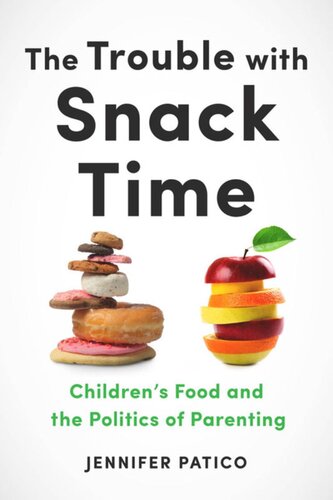

Most ebook files are in PDF format, so you can easily read them using various software such as Foxit Reader or directly on the Google Chrome browser.
Some ebook files are released by publishers in other formats such as .awz, .mobi, .epub, .fb2, etc. You may need to install specific software to read these formats on mobile/PC, such as Calibre.
Please read the tutorial at this link: https://ebookbell.com/faq
We offer FREE conversion to the popular formats you request; however, this may take some time. Therefore, right after payment, please email us, and we will try to provide the service as quickly as possible.
For some exceptional file formats or broken links (if any), please refrain from opening any disputes. Instead, email us first, and we will try to assist within a maximum of 6 hours.
EbookBell Team

5.0
80 reviewsUncovers the class and race dimensions of the "cupcake wars"
In the wake of school-lunch reform debates, heated classroom cupcake wars, and concerns over childhood obesity, the diet of American children has become a “crisis” and the cause of much anxiety among parents.
Many food-conscious parents are well educated, progressive and white, and while they may explicitly value race and class diversity, they also worry about less educated or less well-off parents offering their children food that is unhealthy. Jennifer Patico embedded herself in an urban Atlanta charter school community, spending time at school events, after-school meetings, school lunchrooms, and private homes. Drawing on interviews and ethnographic observation, she details the dilemma for parents stuck between a commitment to social inclusion and a desire for control of their children’s eating. Ultimately, Patico argues that the attitudes of middle-class parents toward food reflect an underlying neoliberal capitalist ethic, in which their need to cultivate proper food consumption for their children can actually work to reinforce class privilege and exclusion.
Listening closely to adults' and children's food concerns, The Trouble with Snack Time explores those unintended effects and suggests how the "crisis" of children’s food might be reimagined toward different ends.